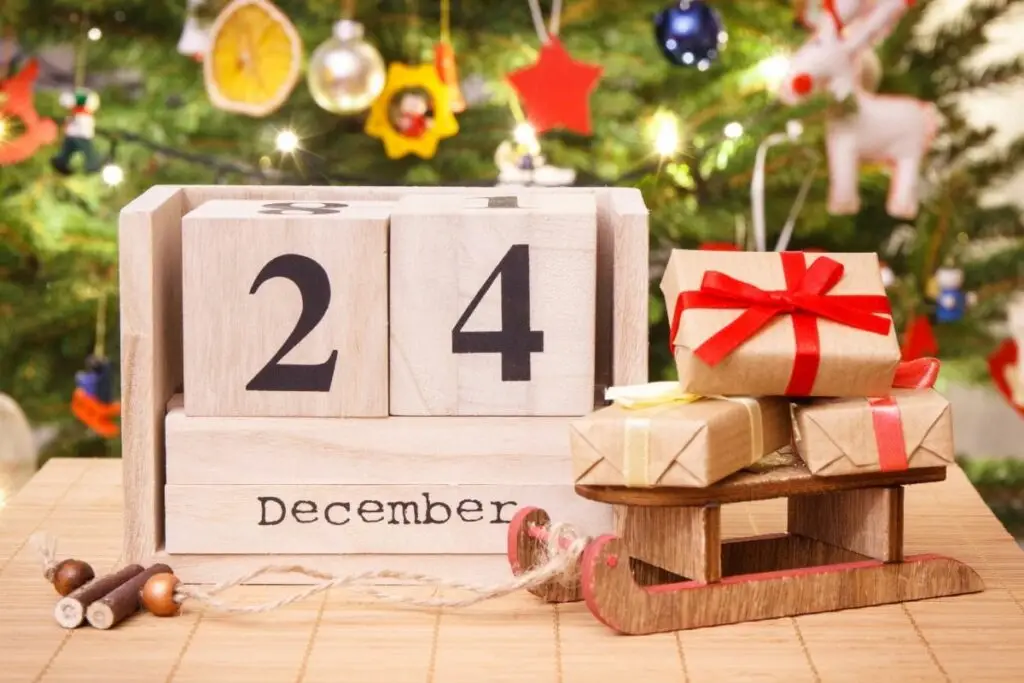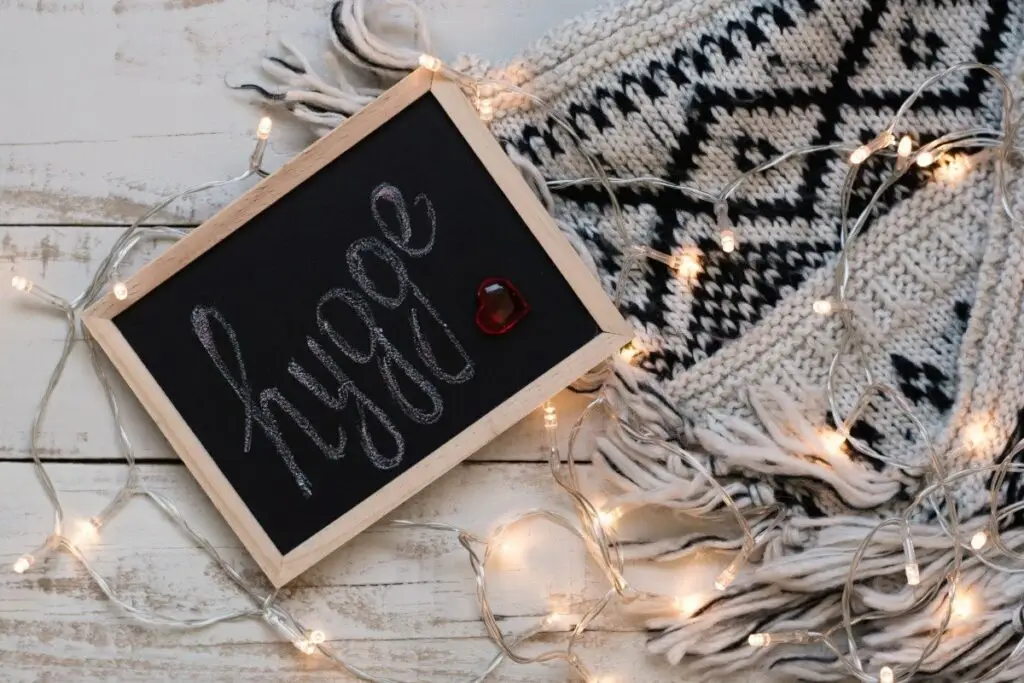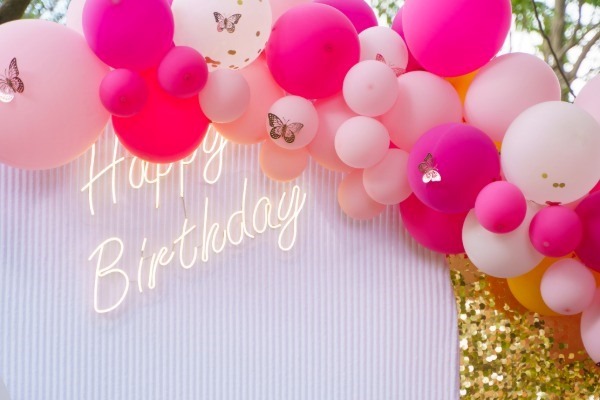Some of the links on this blog may be affiliate links. This means that if you make a purchase through these links, we may earn a small commission at no additional cost to you. We are a participant in the Amazon Services LLC Associates Program, an affiliate advertasing program designed to provide a means for us to earn advertising fees by linking to Amazon.com and affiliate websites.
Gift-giving in Asia is deeply rooted in cultural values, traditions, and symbolism. It serves as a way to express respect, gratitude, goodwill, and celebration. The act of giving a gift is seen as a gesture of care and thoughtfulness, strengthening personal relationships and fostering business connections.
Each country in Asia has its own unspoken gift-giving rules that you should know about. The concepts of face, honour, and social harmony often play a significant role in gift-giving etiquette. The way you present a gift, the choice of the gift itself, and the occasion for giving it can all carry profound meaning. It can strengthen or weaken the relationship between the giver and the recipient.
Let’s explore the gift-giving rules in Asian countries. From China to India, Japan to Thailand, and Malaysia to Indonesia, the nuances and dos and don’ts can vary significantly. Each culture has its own set of norms, taboos, and expectations that dictate the appropriate types of gifts, presentation styles, and etiquette associated with the practise. By being aware of these cultural nuances, you can avoid misunderstandings, show respect, and create a positive impression.
Gift-Giving Differences Between Western and Asian Cultures
In Western cultures, gift-giving is often personalized and focuses on individual preferences. It can be associated with the recipient’s interests, hobbies, and personal preferences. Whereas, in Asian cultures, gift-giving etiquette is rich in symbolism and traditions.
In Western culture, a gift is more of a one-time situation in the present moment for a specific occasion. As much as it is appreciated, it doesn’t have to be reciprocated. On the other hand, according to gift-giving etiquette in Asia, this approach can cause some misunderstandings because it is expected to reciprocate the gift.
Both cultures have common holidays and occasions with the gift-giving traditions; as an example, weddings, Christmas, and New Year’s Eve.
Uspokoen Gift-Giving Rules in China
Gift giving is also deeply rooted in symbolism and tradition in Chinese culture. Red envelopes containing money are commonly given during festivals and special occasions. When selecting a gift, be aware of the symbolism attached to certain colors and avoid items in white or black. Present gifts with both hands and decline a gift before accepting it as a sign of politeness.
In Chinese culture, gift-giving is a significant part of social interactions. Red envelopes containing money are commonly given during festivals and special occasions. When selecting a gift, avoid items in white or black, as they are associated with mourning. Gifts should be presented with both hands, and it is polite to decline a gift before accepting it.
Gift-Giving Etiquette in China
- Gifts should be given privately with discretion.
- Gifts shouldn’t be opened in the presence of the giver immediately.
- The rule of the "three declines". The Chinese person will decline the gift three times to not be seen as greedy before accepting it. You should also behave in the same way; don’t accept the gifts right away.
- The gift should be small and humble. Lavish gifts can be rejected.
- Offer gifts with both hands and accept them with both hands.
- Wrap your gifts in red, which is considered a lucky colour. Red wrapping paper is the safest choice because many colours have meaning in Chinese culture. Other acceptable colours are pink, silver, and gold.
- The best time to offer is right upon your arrival. In case you miss this moment, the second-best one is when everyone sits down and the recipient is preparing tea.
- The number eight is the luckiest number. Items with the number eight are given out of good will.
- Number four is taboo because in Mandarin, "four" sounds the same as the word "death". Avoid giving items with the number four or a set of four items.
- Present gifts starting with the most senior person in the room.
- When giving money in cash, make sure the notes are brand new.
Chinese Gift-Giving Tips
Always be always ready to reciprocate the gifts you receive. Therefore, it’s always good to have spare gifts when you attend different occasions.
If travelling from abroad, avoid wrapping your gifts before the trip. The gift can be checked and opened at airport customs.
Due to the many colours meanings in China, if you are not sure how wrap the gifts, ask for help from your hotel service or go to a store with gift-wrapping services.
Acceptable Gifts
Acceptable Gifts
- A good-quality cognac, or other fine liquor
- A fine pen (not a pen with red ink, writing in red ink symbolizes breaking a bond)
- Kitchen gadgets
- Tea
- Cigarrettes
- Food and fruit baskets are well received, but not during dinner parties where food is served.
- Local specialties from your country, such as handicrafts, illustrated books, chocolates, and wine
- Cash in a red envelope (so called “lucky money”)
Unacceptable Gifts
Unacceptable Gifts
- Sharp objects: knives, scissors
- Umbrellas (the Chinese word for “umbrella” sounds like the word "separate")
- Clocks (associated with death)
- Shoes
- Chrysanthemum
- Jasmine (which means no profit)
- Pears (associated with departure)
- Black, white and blue gifts, or the color of wrapping paper
- Candles (associated with funerals)
- Green hats (became a symbol of a woman betraying her husband)

Symbolic And Thoughtful Gifts in India
In Indian culture, gift giving plays a significant role in building and maintaining relationships. When giving a gift, avoid items made of leather or anything that is not vegetarian, as many Indians follow strict dietary or religious practices. Traditional handicrafts, sweets, or items with religious significance are appropriate choices.
India’s diversity extends to its gift-giving customs, with different regions having unique preferences. For instance, in the northern regions, traditional gifts like shawls, handicrafts, or dry fruits are appreciated. Southern regions often value items like silk garments, temple idols, or aromatic spices as gifts. This is why it is worth researching the recipient’s cultural background in order to select the right gift.
Appropriate Gifts in Indian Regions
North India: For festivities and weddings, gifting traditional attire like sarees, kurta-pajama sets, or stoles would be appreciated. In addition, artistic handicrafts and aromatic spices from this region are excellent choices.
South India: South Indian weddings often involve giving gold or silver items, as they are considered auspicious. A beautiful Kanjivaram silk saree or intricate Tanjore paintings also make delightful gifts.
East India: Handloom products like Dhakai sarees from Bengal or Pattachitra paintings from Odisha make unique and culturally rich gifts.
West India: In this region, you can consider presenting vibrant Bandhani sarees from Gujarat or intricate silver jewelry from Rajasthan.
Gift-Giving Etiquette in India
- Do not buy products easily accessible in India. It’s better to bring something from your home country.
- When giving money, consider giving an odd number value. You can simply add one dollar bill, so instead of 10 USD give 11 USD. It’s believed to bring luck.
- When presenting a gift, use both hands or only the right hand. The left hand is perceived as unclean in Indian culture.
- Avoid white or black wrapping paper, as they are considered to be unlucky colours. The best choice are bright colors, such as red, yellow, or green.
- Show appreciation for the gift and the gesture with a heartfelt thank you.
- Present gifts to elders as a sign of respect and gratitude.
- Don’t open your gift in the presence of the giver. Wait until you are alone in a private place.
- Avoid overly expensive business gifts, as they may be perceived as bribery. Common corporate gifts include luxury sweets, pens, office decor items, or gourmet baskets.
Indian Gift-Giving Tips
Make sure you don’t give any items that have the Taj Mahal on them. Because it’s a mausoleum, this kind of gift will be considered unlucky.
Choose gifts that are appropriate for the occasion. Gifts that are too cheap might be seen as a lack of appreciation.
Acceptable Gifts
Acceptable Gifts
- Gifts and souvenirs from your country
- Delicacies, teas, and chocolates
- Perfumes
- Religious artifacts
- Practical, small gifts
- Household items
- Toiletries
Unacceptable Gifts
Unacceptable Gifts
- Sharp objects: knives, scissors (it is believed that they bring bad luck)
- Clocks or watches (associated with death)
- Frangipanis (associated with funerals)
- For Hindu Indians, avoid food, especially beef and leather goods
- For Muslims, avoid pigskin products and alcohol
- White sari for a woman (worn only by widows)

Japanese art of giving
In Japan, gifts are a polite way of expressing gratitude. Very often, giving is more meaningful than the gift itself. Therefore, sometimes you can receive a gift that may seem very modest. When you are planning on giving presents to someone in Japan, the key is to know when and how they should be given.
People exchange gifts on many occasions: birthdays, anniversaries, weddings, births, graduations, housewarmings, and etc. Another common occasion is after the return from holidays (omiyage) and when attending a meeting (temiyage). Both omiyage and temiyage mean souvenirs in Japanese. Holiday souvenirs are very popular among Japanese families, friends, and colleagues.
Temiyage is a recommended but not obligatory souvenir that expresses gratitude for the time the person spent with you. This is also taken as a request for a good relationship in the future. A small souvenir is typically given to the host when visiting a Japanese home.
Japanese gift-giving customs emphasise care and presentation. Often, the way a gift is wrapped is more important than the content itself. When preparing a gift, pay attention to careful, nice packaging and add a bow as you presenting the gift. Avoid wrapping gifts in white, as it is associated with funerals. When selecting a gift, opt for high-quality items or locally produced goods.
Gift-Giving Etiquette in Japan
- In Japanese business etiquette, gifts are expected to be offered at the first meeting.
- Use both hands when giving or receiving a gift.
- Open the gift privately, unless it’s meant to be shared with everyone.
- The rule of polite declines before accepting the gift applies. A Japanese will decline it once or twice to show modesty before accepting a gift. You should behave likewise.
- Always show gratitude when accepting the present and say thank you.
- When giving gifts to a group of people, remember the hierarchy: the most expensive gift goes to the most important person (e.g., the boss), the less expensive gifts should be given to colleagues.
- Gifts should be beautifully wrapped and presented with a bow.
- The safest wrapping colour is green, which symbolises good luck.
- Avoid white and red wrapping paper. These colours are commonly used during funerals.
- Avoid giving items with the numbers four and nine. The safest way is to give them in pairs.
- Don’t buy products from the local stores, located closely to the recipient’s home.
Japanese Gift-Giving Tips
It’s always good to have spare gifts when you attend different occasions in Japan. You can be ready to reciprocate gifts.
The best moment to give gifts is at the end of your meeting or visit.
Flowers, cakes and candy are always the best choice if you are invited to a Japanese home. Remember to bring flowers in uneven numbers.
Acceptable Gifts
Acceptable Gifts
- Foreign, prestigious name-brand items
- Top-quality alcohols: wine, scotch, brandy, cognac, and bourbon
- Frozen steaks
- Fresh fruits and local specialties
- For kids electronic toys
- Cuff links
- Local gifts and souvenirs
- Pens
Unacceptable Gifts
Unacceptable Gifts
- Sharp objects: knives, scissors
- White wrapping paper (it is associated with funerals)
- Gifts that are easily purchased in Japan
- Gifts with company logo
- Lilies, lotus blossoms, and camellias
- Any white flowers (associated with funerals)
- Giving four or nine of anything is considered unlucky
- Red Christmas cards – they are usually given during funerals
- Clocks (associated with death)

Malaysian Bonding Through Gifts
In Malaysia, a country rich in cultural diversity, presenting gifts is a rooted tradition that serves to strengthen bonds. Understanding the unspoken gift-giving rules in Malaysia is essential to avoid any unintentional cultural faux pas and to ensure your gestures are well received. Gift-giving goes beyond mere material offerings; it symbolizes warmth, respect, and sincerity.
Malaysia’s population consists of Malays, Chinese, Indians, and various indigenous groups, each with its own customs and traditions. Therefore, it is very important to do research about these cultures before selecting and presenting gifts.
Different Cultures And Their Gift-Giving Traditions
Chinese Customs:
• During Chinese New Year, offer “ang pow” (red envelopes) with money as a symbol of good luck and prosperity.
• Gifts of oranges or tangerines represent good fortune and are well received.
• For special occasions like weddings, consider giving gifts in pairs, as they symbolize harmony and unity.
• Red is considered a lucky colour, so red envelopes or gifts wrapped in red are appropriate. Additionally, gifts of tea or sweet treats are well-received.
Malay Traditions:
• Choose modest and meaningful gifts, as extravagance may be frowned upon. Fruits, traditional clothes, or prayer mats are excellent choices.
• In celebrations such as Eid (Hari Raya), traditional Malay cookies or pastries like “kuih” are good gifts.
• Presenting gifts that can be shared among family members are appreciated, as Malaysians emphasize the importance of community and togetherness.
Indian Practices:
• When attending an Indian celebration, consider bringing a box of sweets, fresh fruits, or traditional accessories like bangles.
• For Diwali, the Festival of Lights, sweet treats like “mithai” are customary gifts.
• Offer books or educational materials if the recipient is academically inclined, as education is highly valued in Indian culture.
Gift-Giving Etiquette in Malaysia
- Gifts are reserved for friends, so in a corporate environment, make sure you offer presents to someone with whom you have a personal relationship. Expensive business gifts may be perceived as bribes.
- Offer gifts with both hands, palms facing upward.
- Avoid white, blue, or black wrapping paper, as they are associated with mourning and funerals. Use colorful paper and ribbons; the safe choices are green, pink, and red.
- Avoid gifting items like alcohol or pork to Muslims, and opt for Halal-certified or non-religious gifts instead.
- Don’t open your gift right away in the presence of the giver. Wait until you are alone in a private place.
- If you are invited to someone's home, bring a small gift, such as pastries or chocolates for the host.
- Avoid giving very expensive gifts, as Malaysians will feel embarrassed if they can’t reciprocate your gift.
- When giving money, remember to give an even number.
Malaysian Gift-Giving Tips
Malaysians value aesthetics, so take your time to beautifully wrap your gift. It will show your recipient that you care.
Malaysians believe in reciprocating kindness, so don’t be surprised if you receive a gift in return. Accept it graciously to maintain the spirit of goodwill.
Acceptable Gifts
Acceptable Gifts
- Gifts and souvenirs from your country
- Delicacies, chocolates
- Alcohol-free perfumes or colognes
- Practical, small gifts
- Household items
Unacceptable Gifts
Unacceptable Gifts
- Sharp objects: knives, scissors (it is believed that they bring bad luck)
- Flowers (which are usually given to the sick and at funerals)
- Clocks or watches (associated with death)
- For Hindu Malaysians, avoid food, especially beef and leather goods
- For Muslims Malaysians, avoid pigskin leather products and alcohol

Multicultural Gift-Giving in Singapore
In Singapore, Chinese, Malay, Indian, and Western customs coexist harmoniously, creating a unique blend of traditions. Regardless of the cultural background, gift-giving is a gesture of thoughtfulness and respect towards the recipient. Check out the below cultural norms, the dos and don’ts, so you can make a lasting positive impression when visiting friends or colleagues in Singapore.
Avoid giving overly extravagant gifts, as this may be seen as ostentatious and create discomfort for the recipient. Instead, opt for meaningful and practical presents that reflect your appreciation and understanding of the recipient’s interests.
Appropriate Gifts for Specific Occasions
• Chinese New Year: During this yearly festival, traditional gifts such as mandarin oranges, sweets, and red packets with money are highly appreciated.
• Hari Raya Aidilfitri: This Muslim festival celebrates the end of Ramadan. Consider bringing halal treats, fruit baskets, or decorative items for the home.
• Deepavali: The festival of lights celebrated by Hindus. Present Indian sweets, candles, or oil lamps as thoughtful gifts.
• Birthdays: Personalised gifts reflecting the recipient’s interests or hobbies are ideal. Alternatively, bring a birthday cake to share with friends and family.
• Weddings: Offer practical gifts for the couple’s new home, such as kitchenware or bedding. Monetary gifts in odd denominations are also customary.
• Diwali: Brighten up the Festival of Lights with gifts like candles, Indian sweets (mithai), or decorative items.
• Christmas: Traditional Christmas gifts like chocolates, festive hampers, or personalised gifts are a great choice.
Unspoken Gift-Giving Rules in Singapore
- Offer gifts with both hands as a sign of respect and sincerity.
- Gift wrapping is of utmost importance. Choose elegant wrapping paper, and if you're unsure, red and gold are safe choices as they symbolise luck and prosperity.
- Avoid white or black wrapping paper, as they are associated with mourning and funerals.
- Present gifts to elders as a sign of respect and gratitude.
- Don’t open your gift right away in the presence of the giver. Wait until you are alone in a private place.
- If you are invited to someone's home, bring a small gift, such as pastries or chocolates, for the host.
- Avoid giving very expensive and luxurious gifts, as the recipient might not be able to reciprocate your gift.
Singaporean Gift-Giving Tips
Offer gifts with humility and a warm smile, which will be appreciated and reciprocated graciously.
Singaporeans will refuse your gift a couple of times before accepting it to not be seen as too greedy. You should behave in the same way. Never accept a gift without first refusing it.
Acceptable Gifts
Acceptable Gifts
- Gifts and souvenirs from your country
- Delicacies, tea, and chocolates
- Fruit baskets, cakes, chocolates, flowers, and imported coffee
- Practical, small gifts
Unacceptable Gifts
Unacceptable Gifts
- Sharp objects: knives, scissors
- Clocks or watches (associated with death)
- For Indian or Hindu Singaporeans: beef, leather products, and alcohol
- White flowers, which are associated with funerals
- For Muslims Singaporeans, avoid pigskin leather products and alcohol

Modesty in Generous Gestures in South Korea
Gift-giving holds significant cultural importance in South Korea. It’s reflects the country’s emphasis on respect, hierarchy, and social harmony. You can expect to receive gifts at weddings, birthdays, or special occasions. The act of giving and receiving gifts carries symbolic meaning as it reflects the importance of relationships. In the workplace, gifts are commonly used to build relationships and acquire favours.
Gifts express the giver’s thoughtfulness. It means that the sentiment behind the present is more important than its value. Therefore, remember the recipient’s tastes, needs, and interests when choosing a gift. This personal touch will surely be appreciated. It’s not just the gift itself but the sentiment and respect behind it that truly matter in South Korea’s gift-giving tradition.
Appropriate Gifts For Different Occasions
Chuseok (Korean Thanksgiving): Chuseok is a significant harvest festival where families gather to pay respects to their ancestors. Traditional gifts like songpyeon (rice cakes), fruits, and alcohol are fitting choices for this occasion.
Seollal (Lunar New Year): Seollal is the perfect time to present gifts like hanboks (traditional Korean clothing), skincare sets, or a beautifully arranged fruit baskets.
Doljanchi (First Birthday): Celebrating a child’s first birthday is a big event. You can offer baby clothes, jewellery, or books as meaningful and practical gifts.
Business Meetings: If you’re invited to a business meeting, consider giving a modest gift from your home country, such as local sweets or a unique souvenir.
Unspoken Gift-Giving Etiquette in South Korea
- Offer gifts with both hands and a warm smile.
- Avoid dark wrapping colours; they are associated with funerals.
- Wrap gifts neatly and use colourful wrapping paper because presenting matters.
- If you plan on giving cash, put it in a nice envelope.
- Don’t open your gift right away in the presence of the giver. Wait until you are alone in a private place. Only gifts received from very good friends can be opened in front of the giver. It’s appreciated to ask a the giver if you can open the gift.
- If you are visiting someone's home, be sure to have a gift for the host.
- Avoid giving very expensive and luxurious gifts, as the recipient might not be able to reciprocate your gift.
South Korean Gift-Giving Tips
Always show gratitude when accepting the present and say thank you.
Koreans, like Chinese and Japanese, will also refuse your gift a couple of times before accepting it. You should behave likewise.
Acceptable Gifts
Acceptable Gifts
- Gifts and souvenirs from your country
- Traditional gifts such as Hanbok (Korean traditional clothing), Hanji (traditional paper crafts), or Dojang (name seal).
- Hanwoo beef
- Traditional Korean tea sets
- Cosmetics or skincare products
- Health-related products (Korean ginseng or red ginseng products are appreciated)
- Fruit baskets, cakes, chocolates, flowers, and imported coffee
- High-quality liquors and cigarettes
- Money in envelope
Unacceptable Gifts
Unacceptable Gifts
- Sharp objects: knives, scissors (they symbolize cutting off the relationship)
- Do not give any alcohol to a woman as a gift.
- Gifts with red writing (associated with death)
- Gifts in a set of four (they are considered unlucky)
- Lilies, which are common flowers used during funeral services.
- Handkerchiefs (there’s a superstition that they are used for cleaning up the sadness and tears)



















